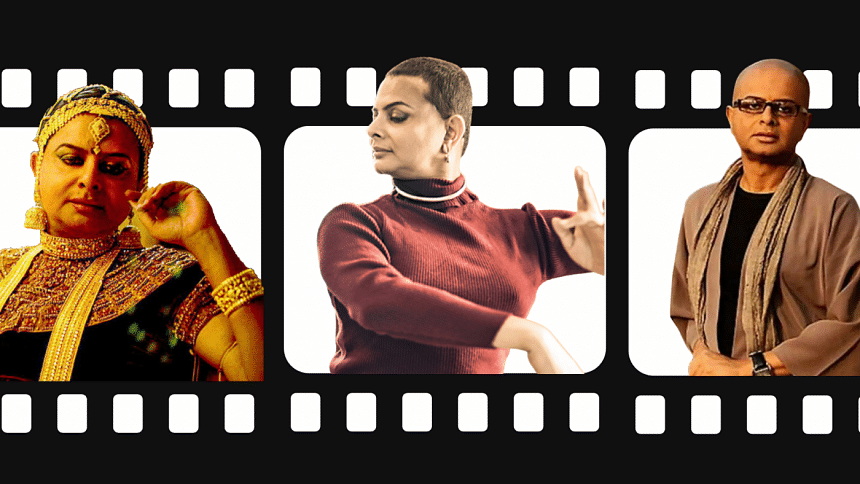The world of Rituparno Ghosh

In countries where identities are not encouraged but forced upon, where gender and sexuality have binary divisions, where beauty seems absent in love and life, Rituparno Ghosh stood against the norms and questioned everything we thought we knew.
Through his writing, direction and acting, he took his audience to a world where the clouds deliver messages of gloom, where the separation of lovers is mourned, and where boundaries of gender roles crumble.
Rituparno began his career as a copywriter, where his creativity earned him fame and success. He shifted to filmmaking soon, and made his first film "Hirer Angti" in 1992. It is, however, his second film, "Unishe April", which heralded the presence of a star in the horizons of Bengali cinema. The film was released in 1994, and won two National Film Awards in 1995.
"Unishe April" was monumental in its portrayal of a complicated mother-daughter relationship. Apart from the works of Mrinal Sen, Bengal had rarely witnessed such a realistic view on this type of relationship till then. It offered no unnecessary glorification of a mother's role, and showed no effort to hide a mother's flaws. It was almost as if Ritu reminded women of this part of the world, that at times, it is perfectly fine to put one's needs ahead of their children's.
Ritu's next film, "Dahan" (1997) earned him the National Film Award for Best Screenplay. The movie was based on Suchitra Bhattacharya's story of the same name, and showed the real story of a woman who fought to get justice for a victim of sexual abuse.
In the film, Ritu showed the dichotomy and dilemma of modern Bengali women in a nuanced manner. A woman who is modern in her thoughts and beliefs, gets so wrapped up in familial prejudices and social callousness, that in the end, it is she who suffers. The sympathy with which he showed this, and the courage with which he was fearless while doing so, are key components of what made the magical director who he was.
The power of his work can aptly be seen in "Bariwali" (2000). In a part of the world where it is scandalous for any woman to even hint at her sexuality, Ritu showed an elderly woman's loneliness and her inner desires. In his film "Chokher Bali" (2003), based on a novel written by Rabindranath Tagore, we see Aishwariya Rai as Binodini, who is fearless in transgressing the boundaries set by a patriarchal society. Never before had Bengali cinema been so successful in projecting what it means to be a widow, especially when, even today, people shudder at the thoughts of a widow's freedom.
In "Asukh" (1999), he showed the relationship between a daughter and her father. The unwillingness of a father to depend on his daughter's earnings was show delicately, working as a reminder that even women who are apparently free from the clutches of dogmatism aren't truly free.
In "Titli" (2002) and "Raincoat" (2004), we see the sacrifices women have to go through for marriage. Ritu stripped down this façade, and asked us if we were willing to accept the pain and hurt caused to women in the name of safeguarding family prestige and tradition.
"Satyanweshi", the last film the maestro worked on, was based on Bengali detective Byomkesh Bakshi and turned out to be a cult favourite as well. While most detective movies focus on mysterious and overdone music, Ritu's apt use of cinematography and aesthetics made it distinct from other mystery movies made in Bengali.
Rituparno the actor is just as marvelous as the one that wears the director's cap. His acting in two movies that are based around queer relationships, "Memories in March" and "Arekti Premer Golpo" was extremely significant from a social perspective. It played a massive role in humanizing queer relationships in India.
The works of Rituparno are quintessentially Bengali. Songs of Tagore playing in the background, plenty of Durga Puja shots, women in sarees and so on made him dear to Bengali movie lovers. But it is his constant questioning about social structures and organised oppression that immortalised the man as a legend.

 For all latest news, follow The Daily Star's Google News channel.
For all latest news, follow The Daily Star's Google News channel. 







Comments